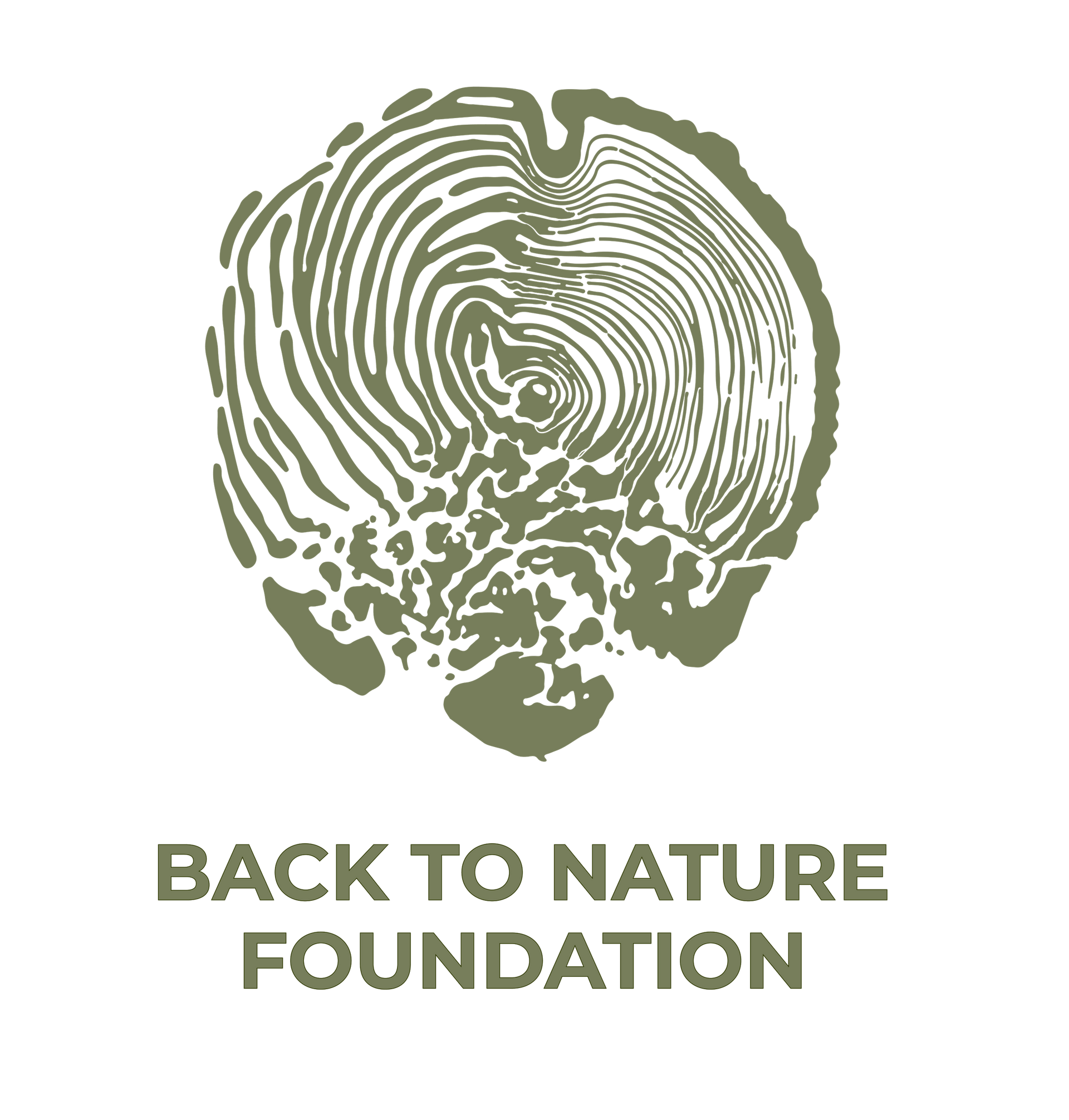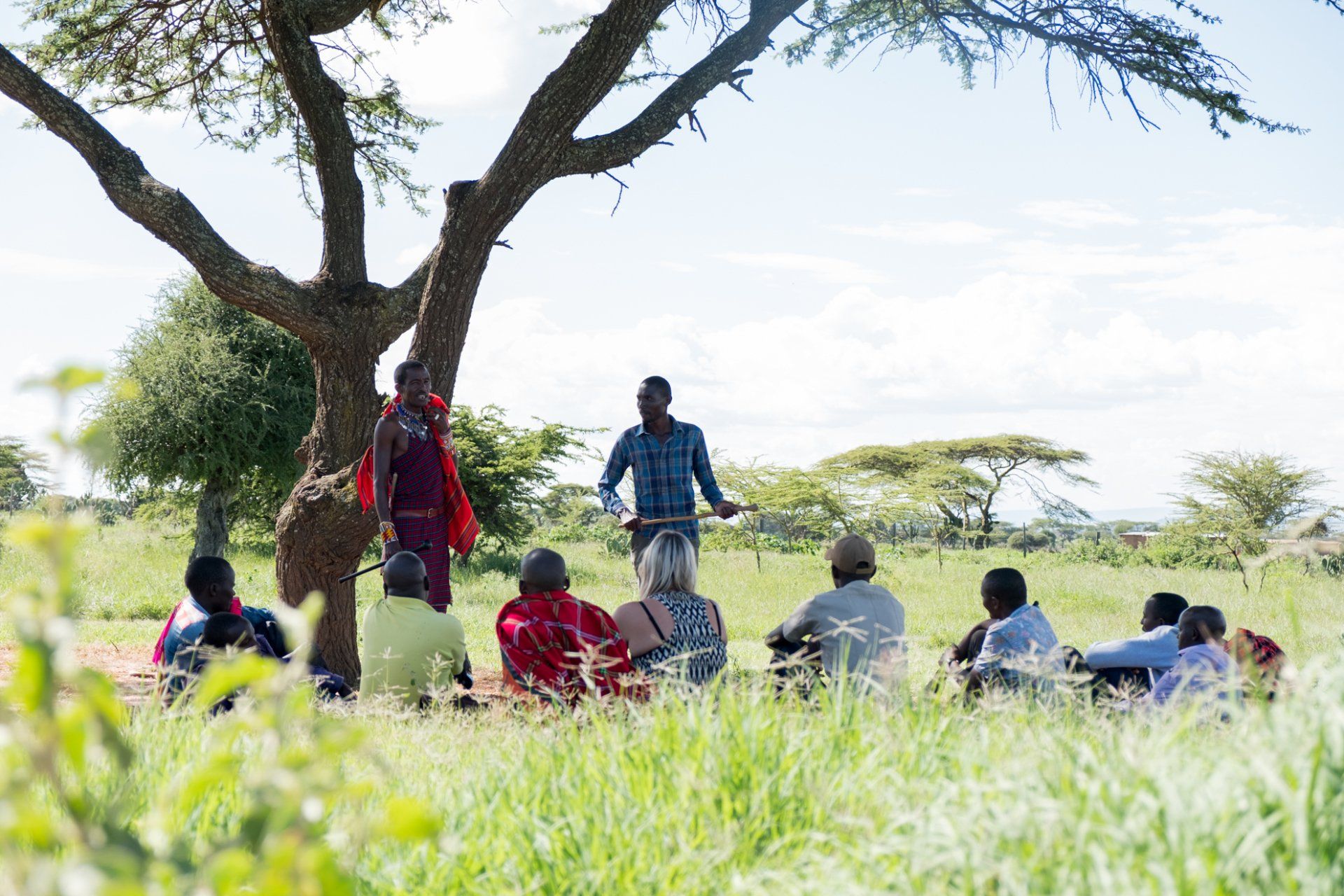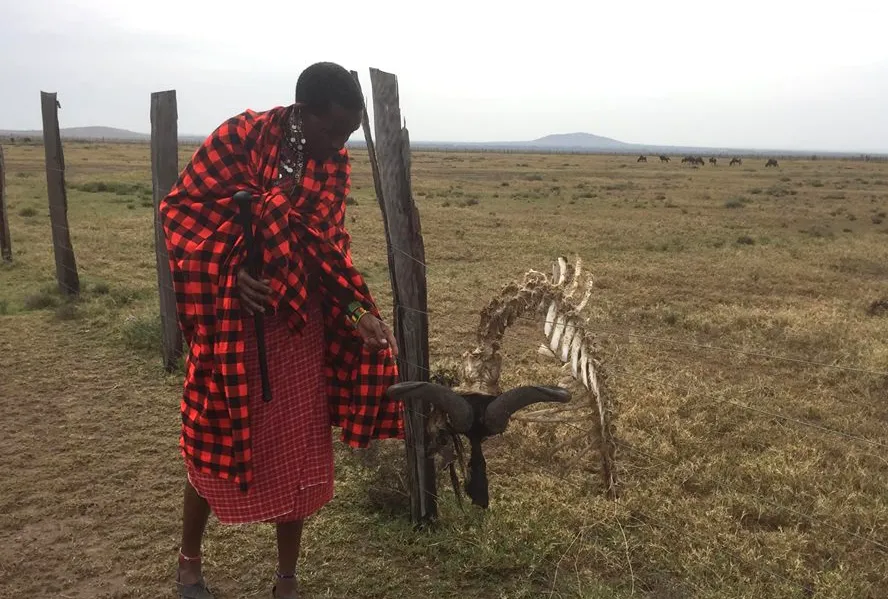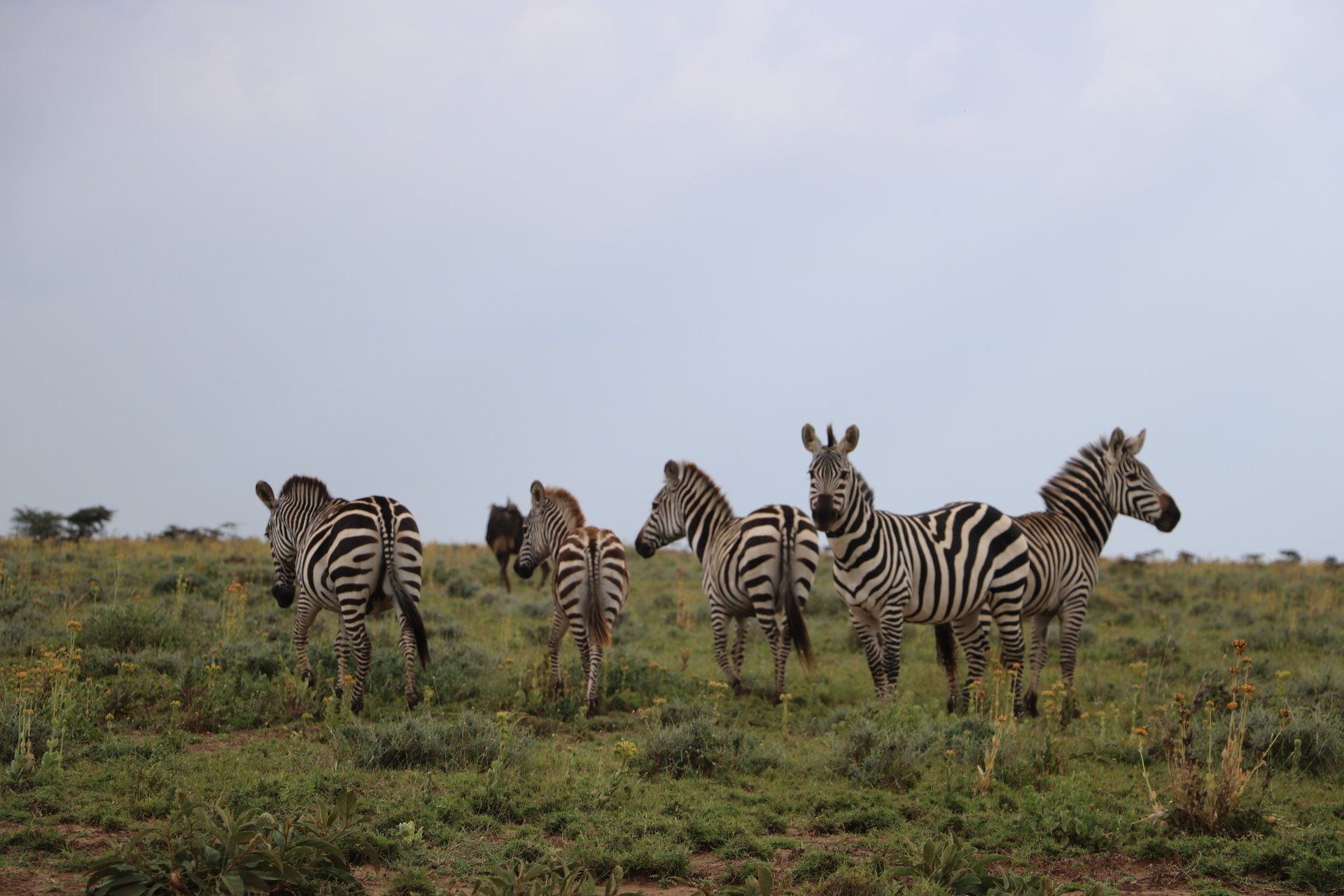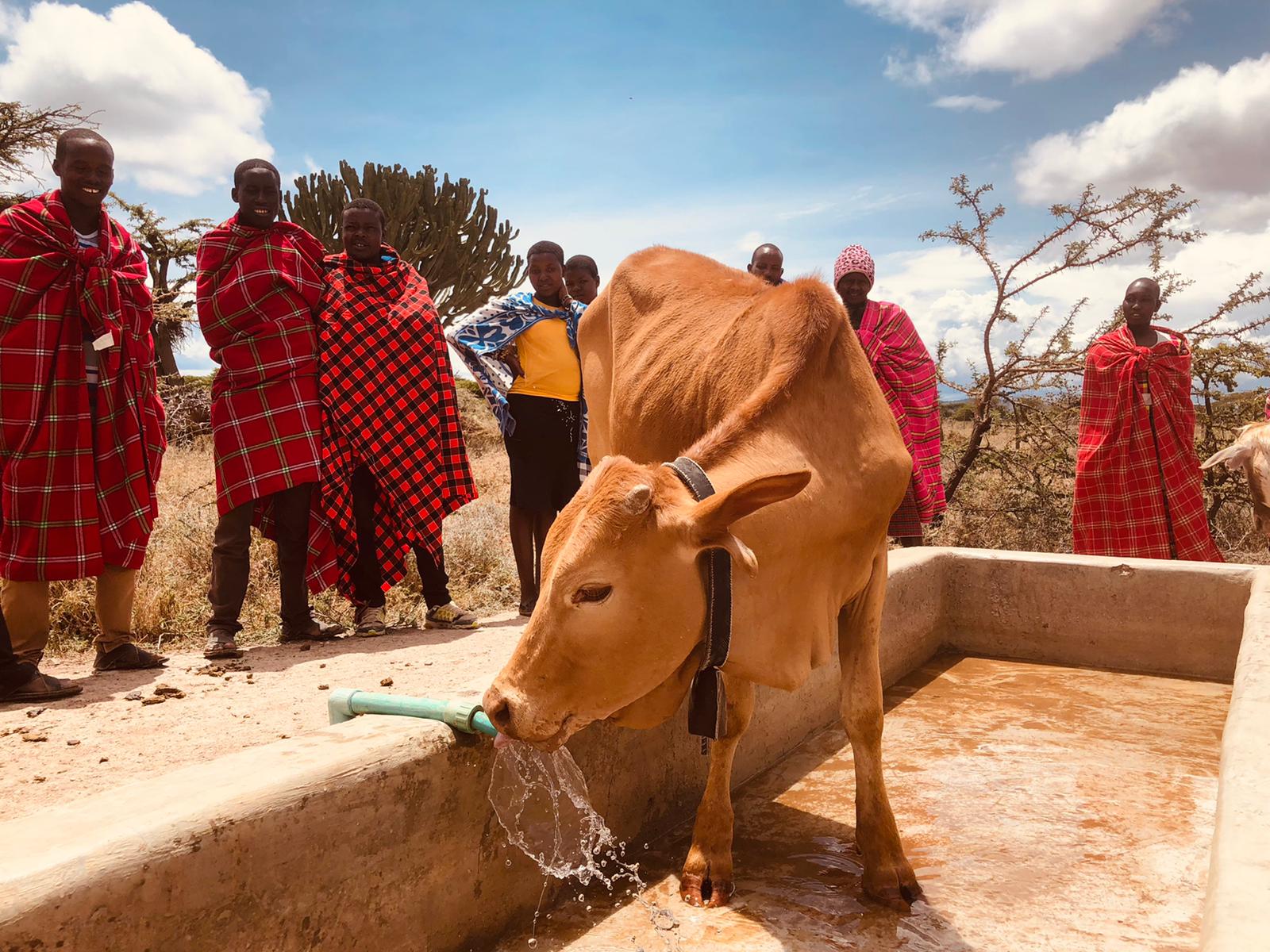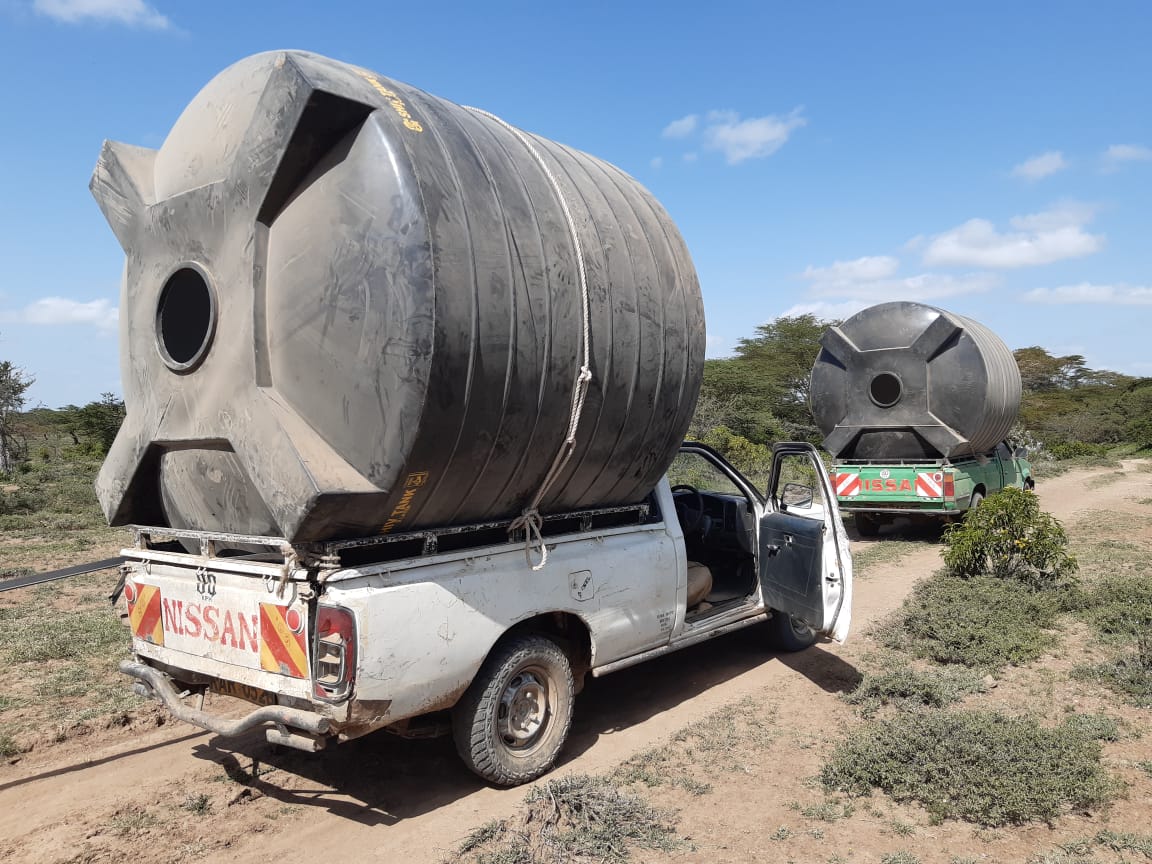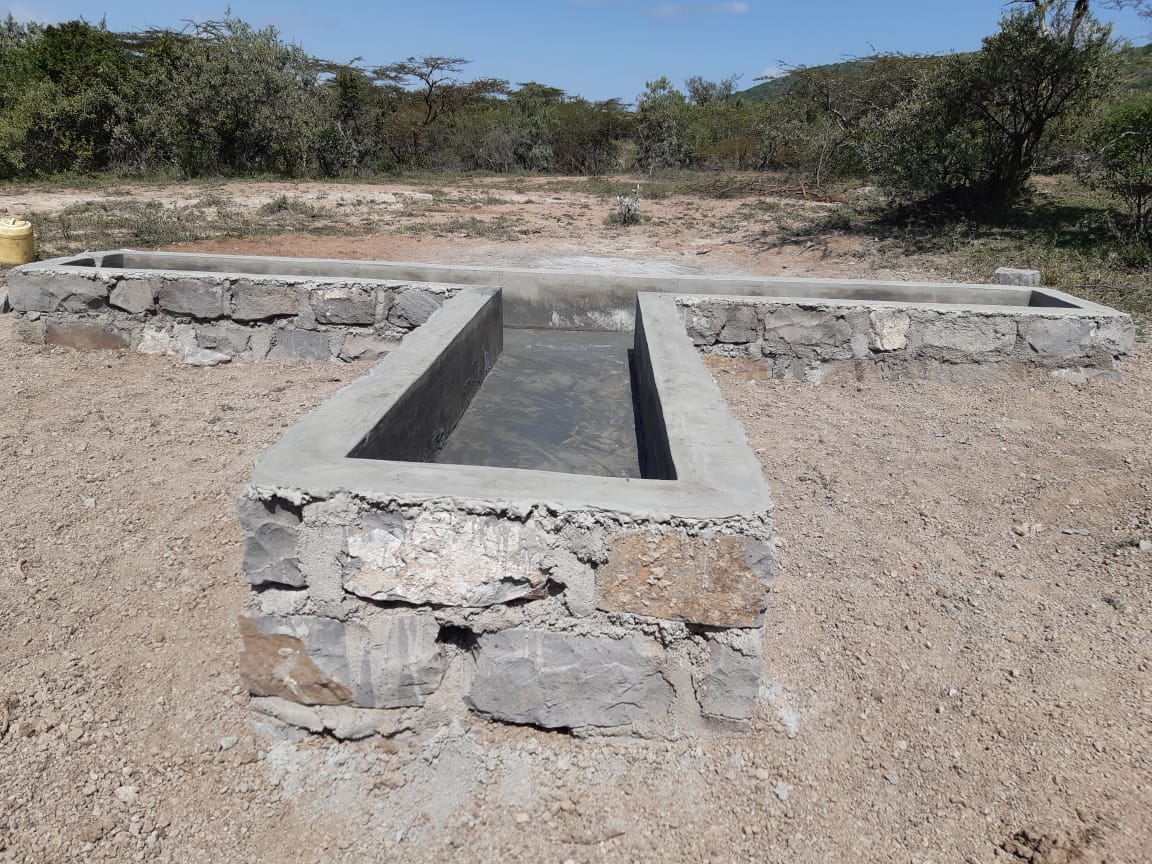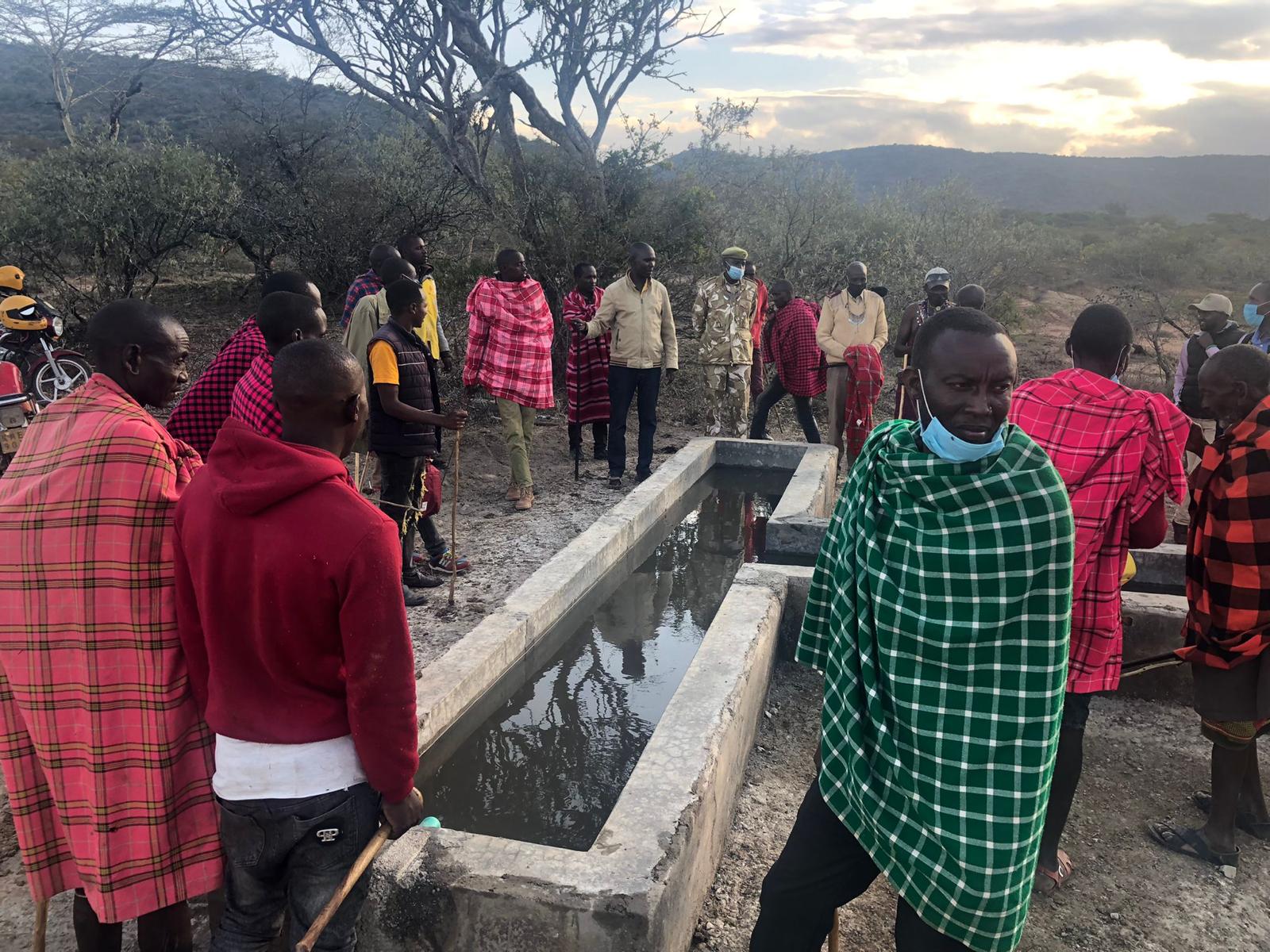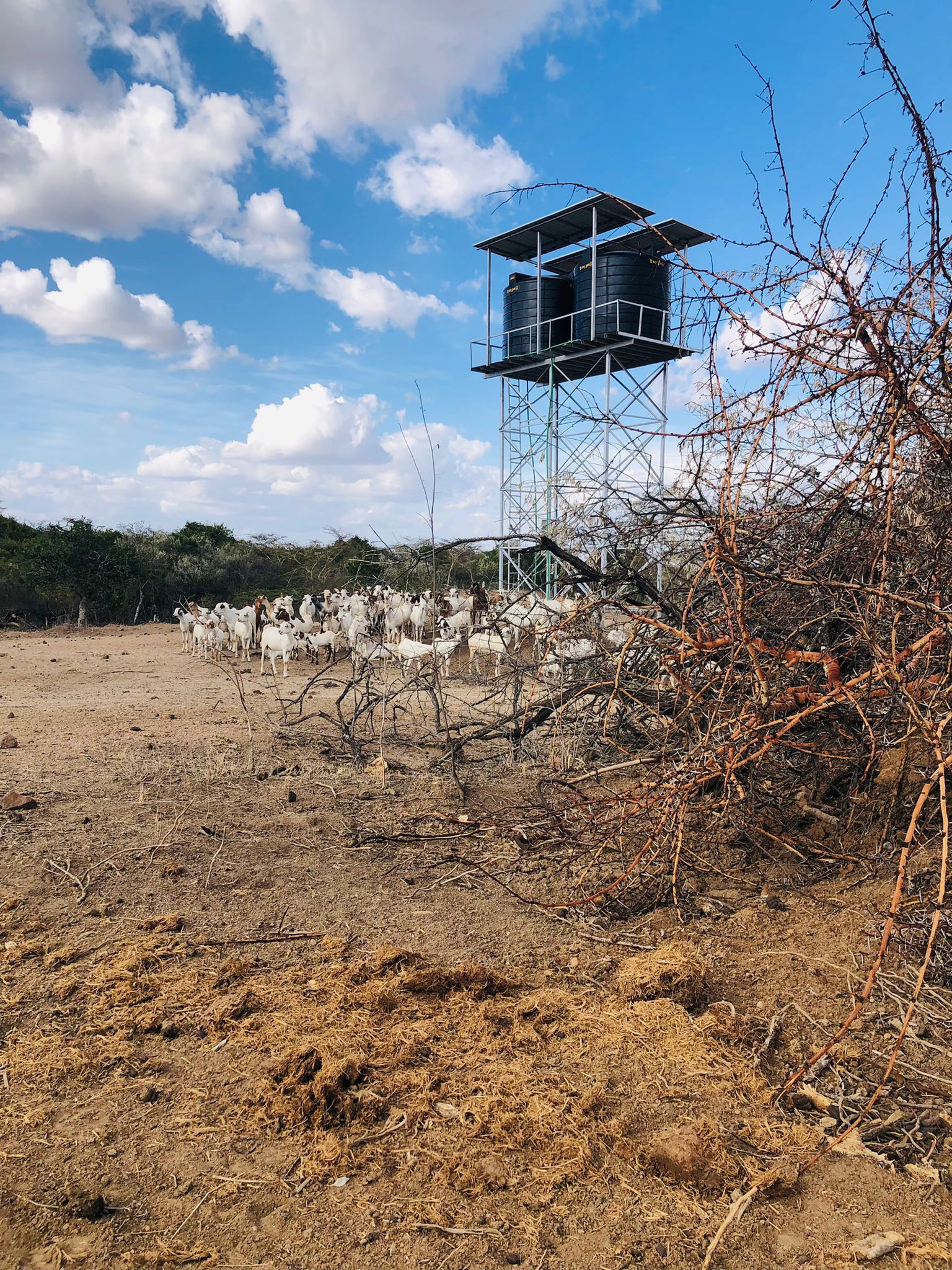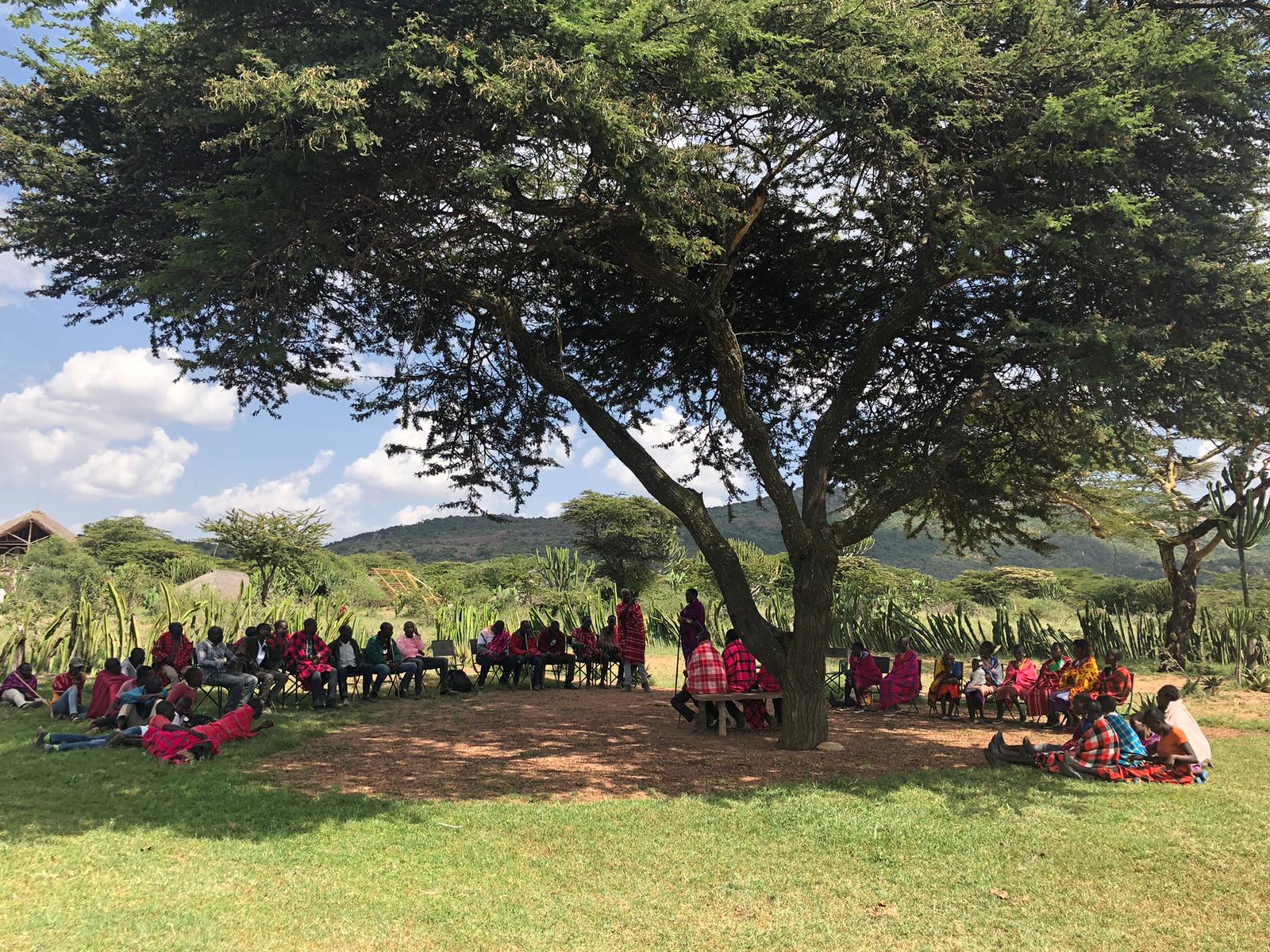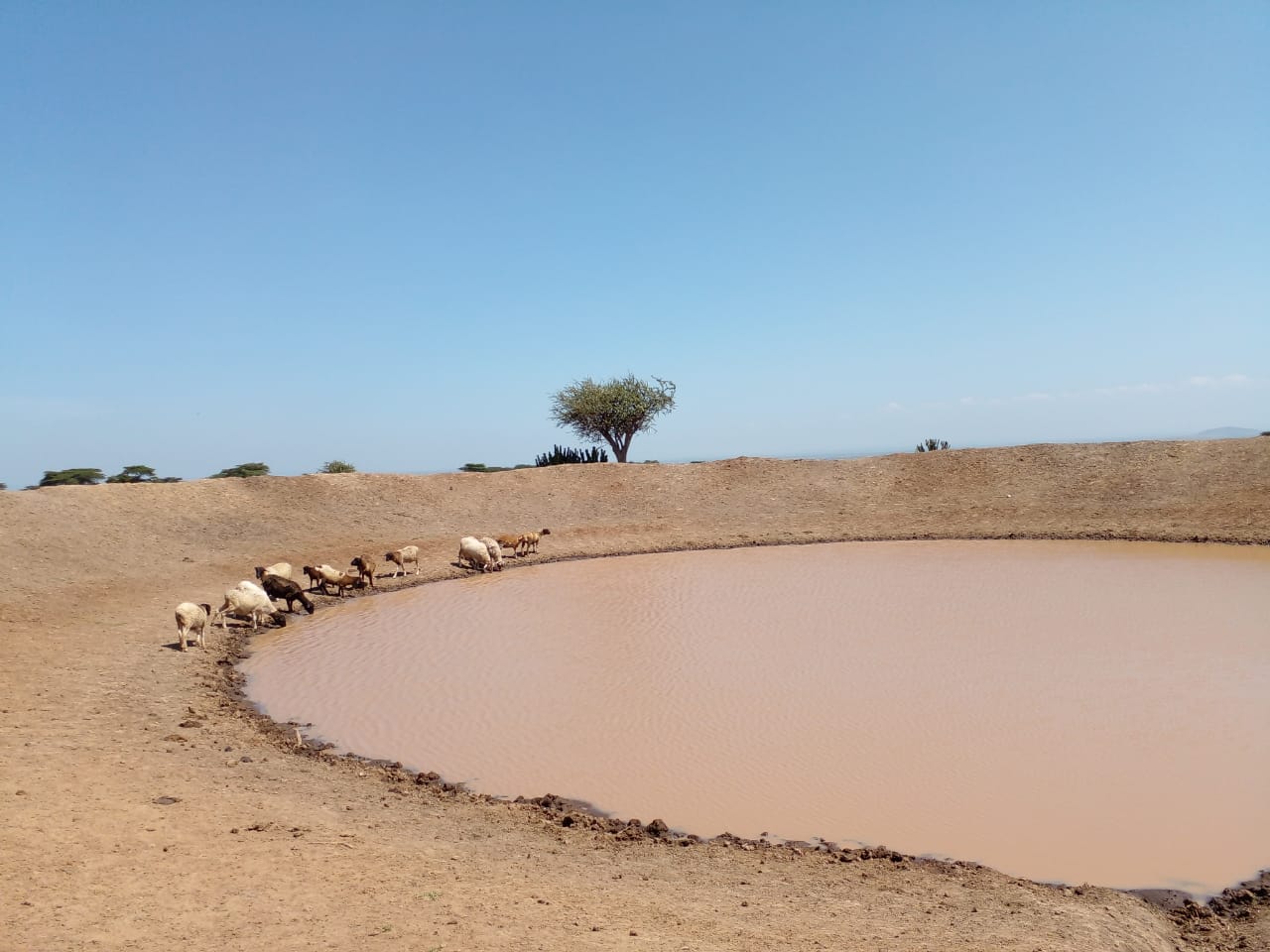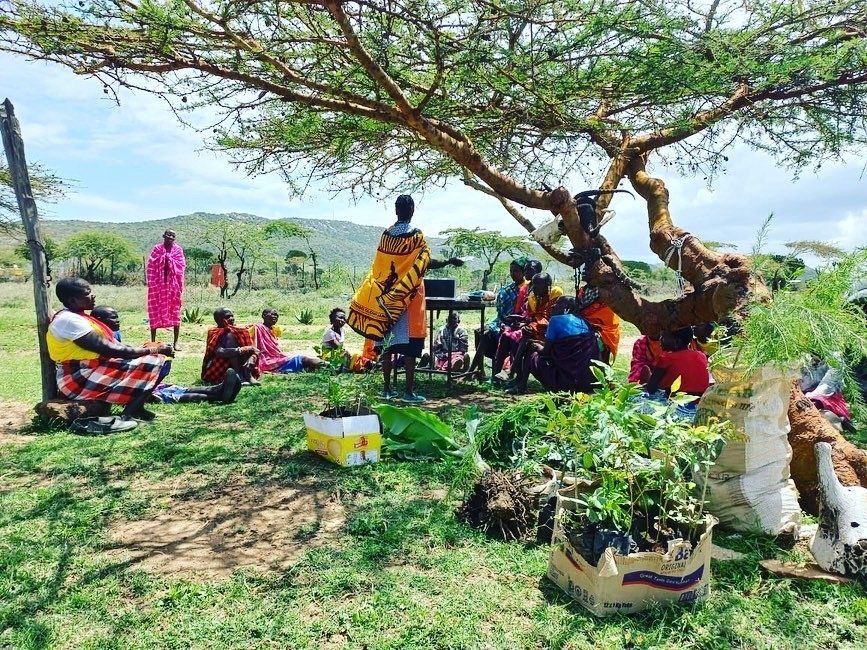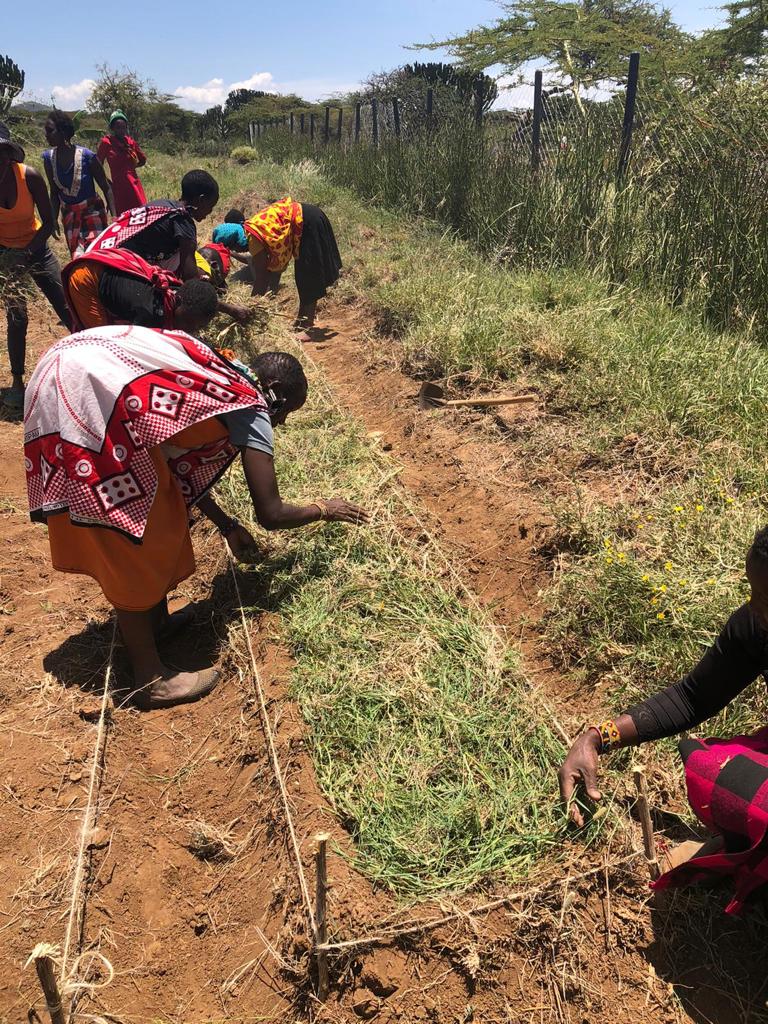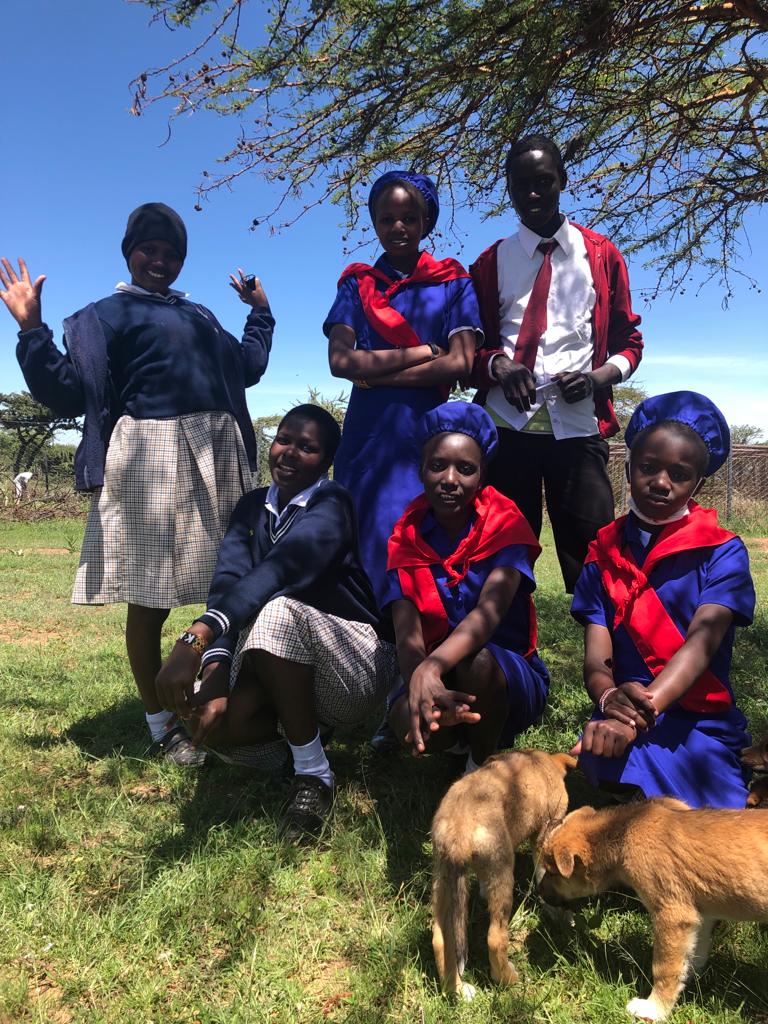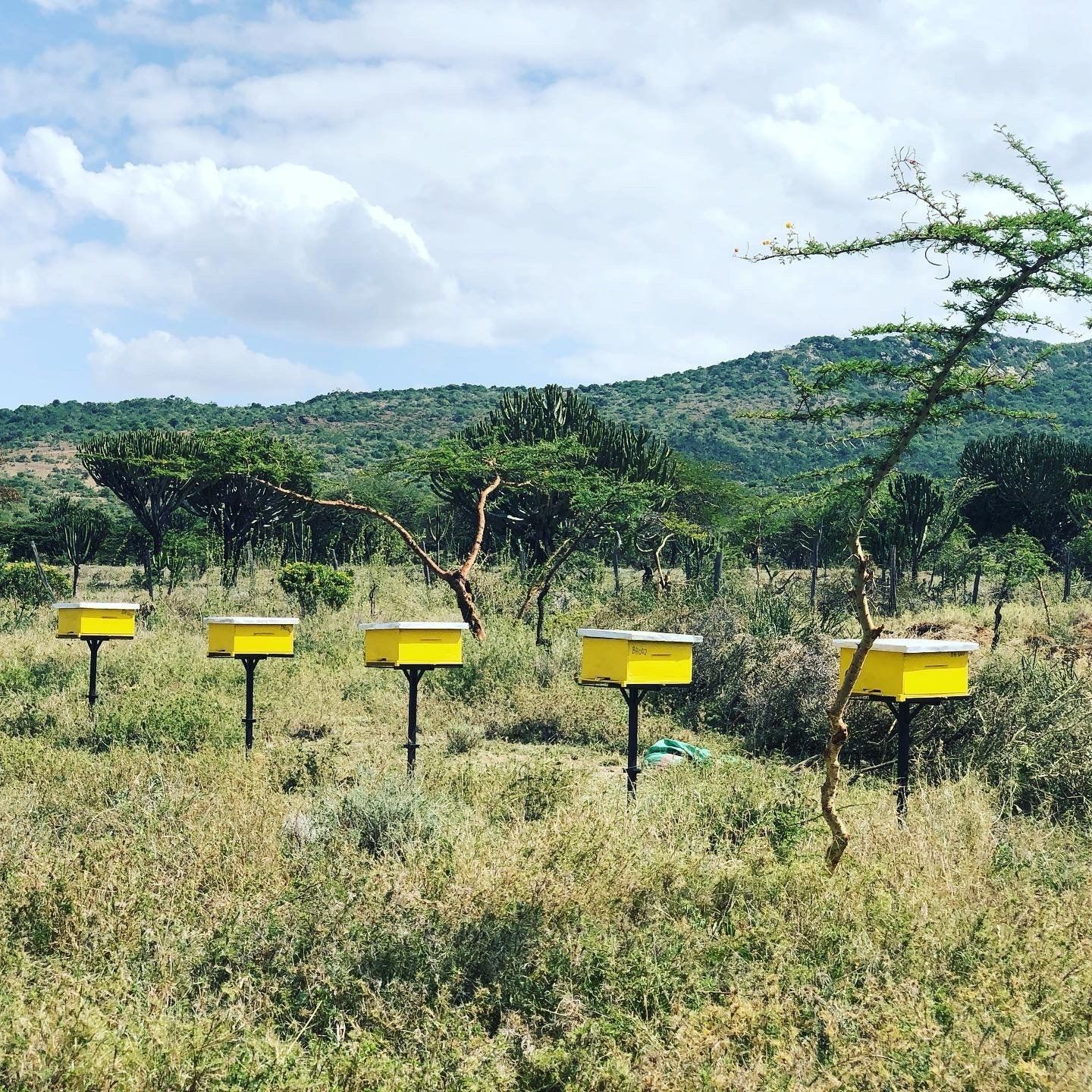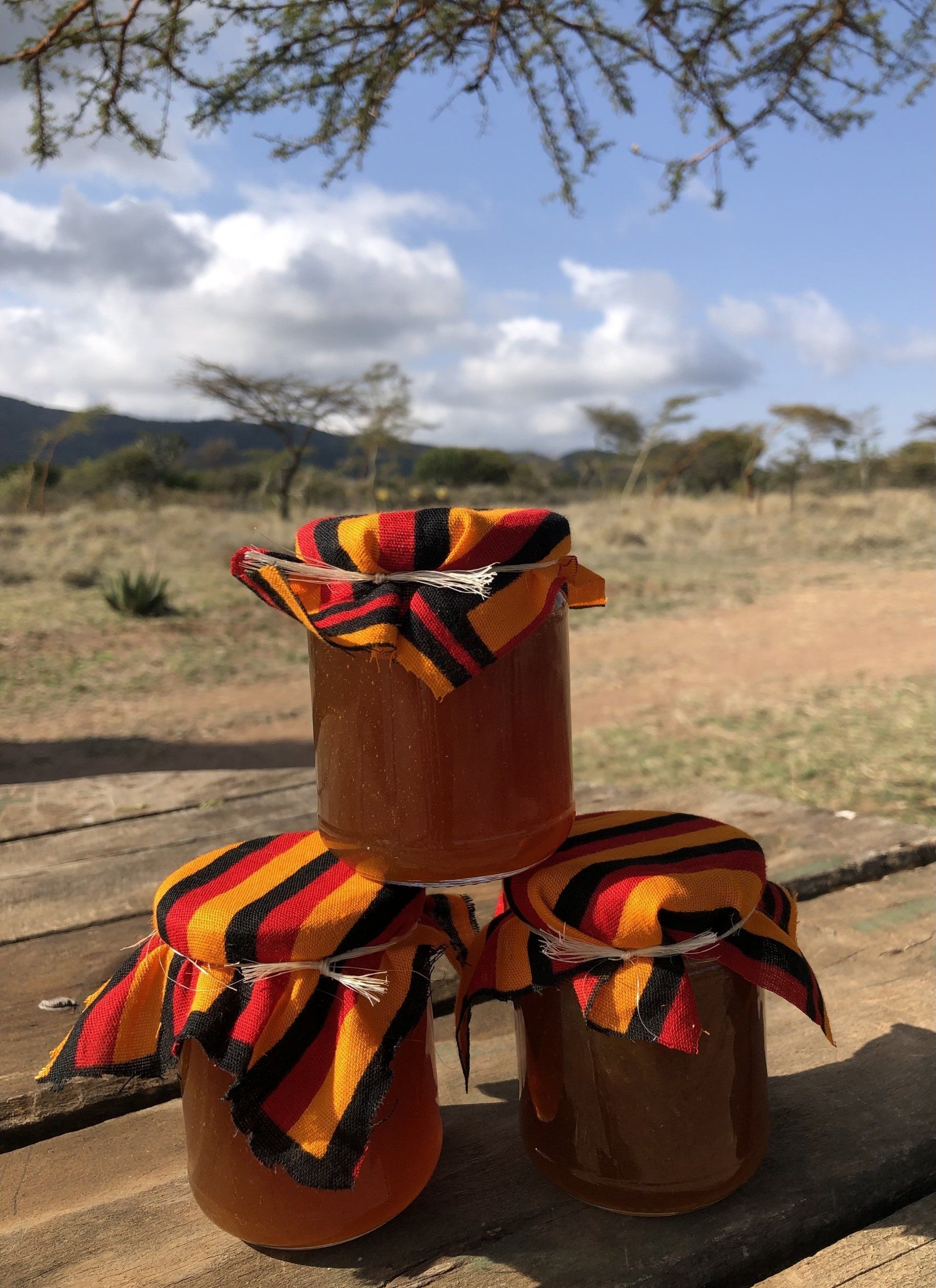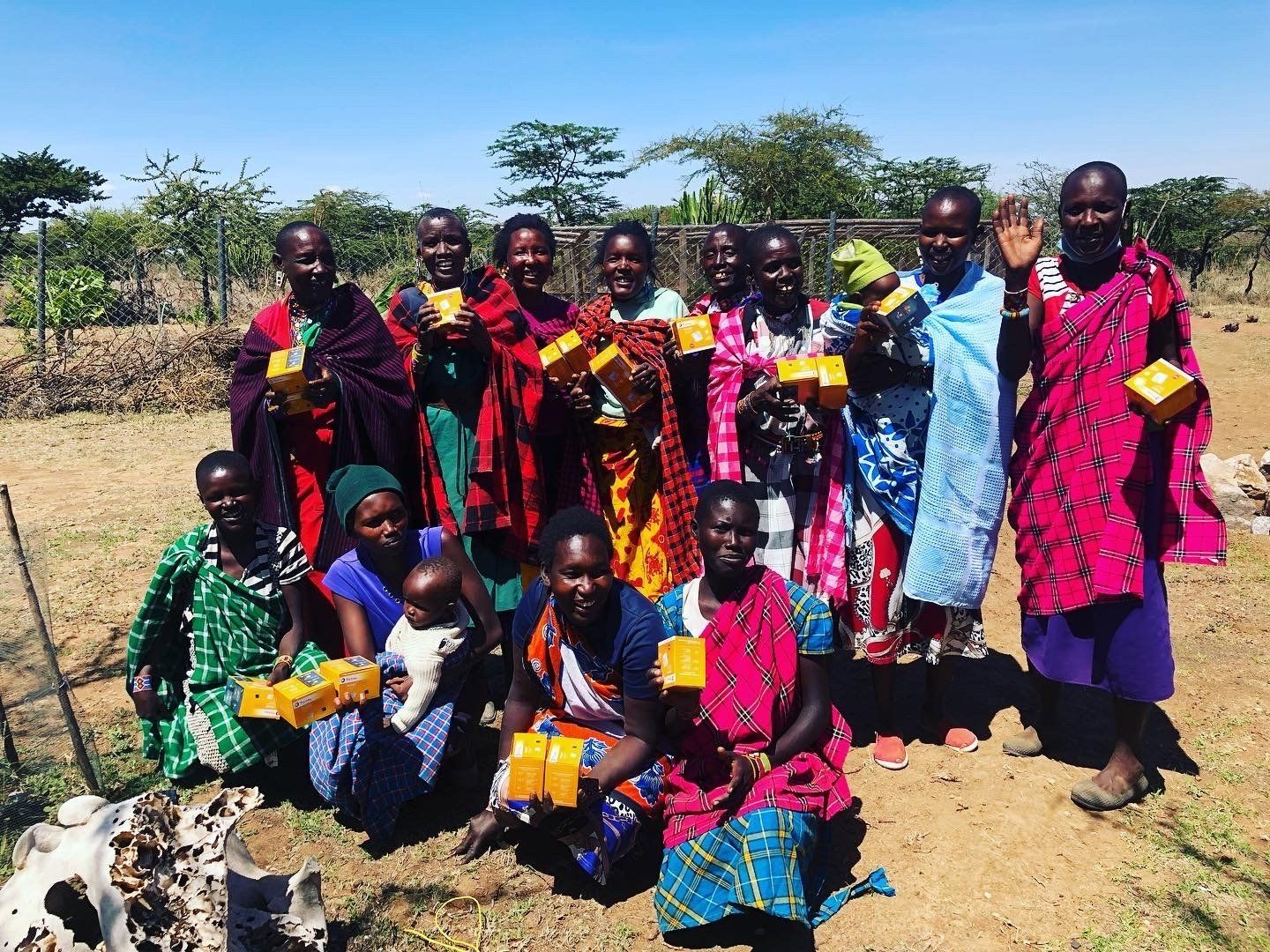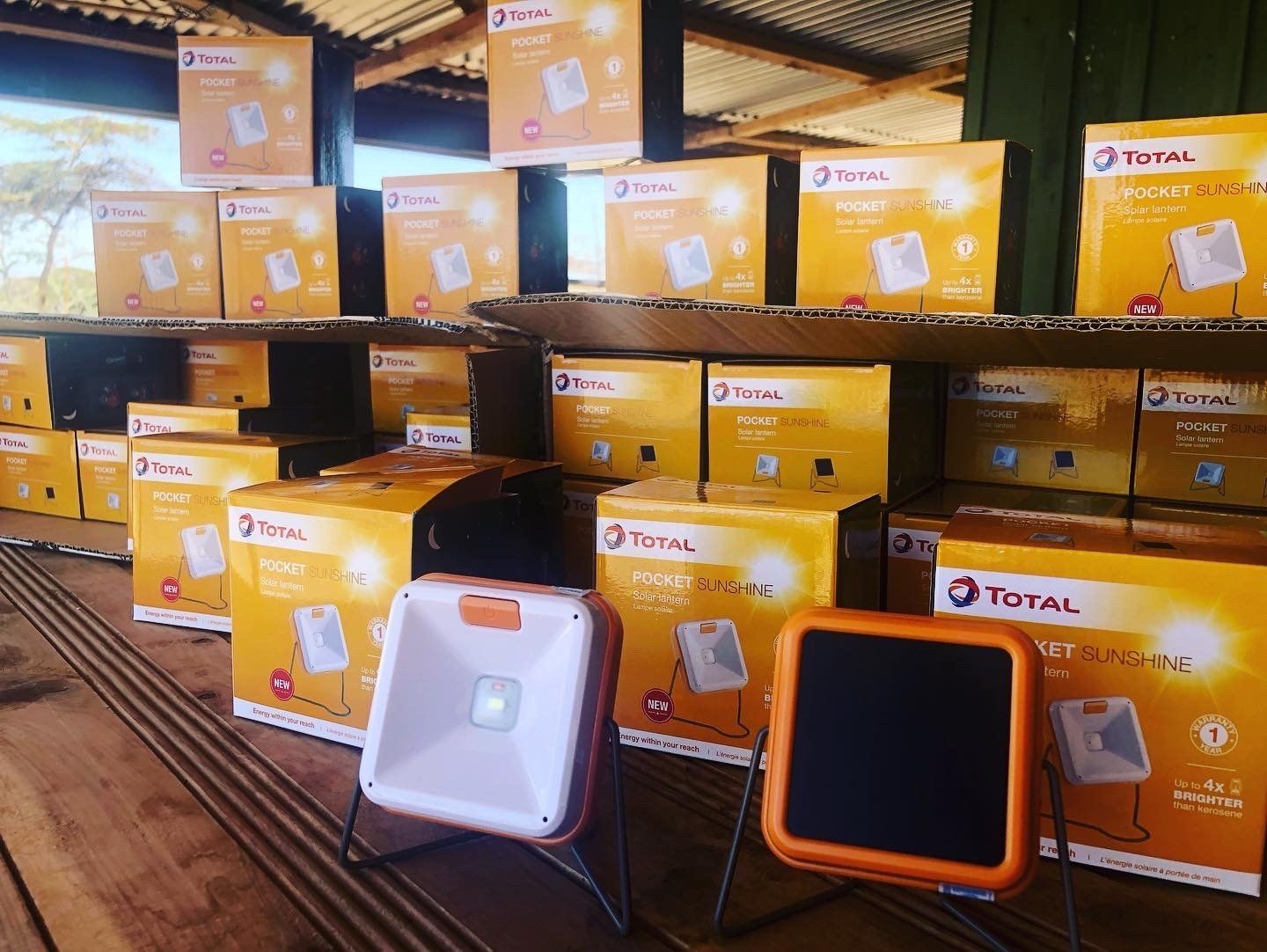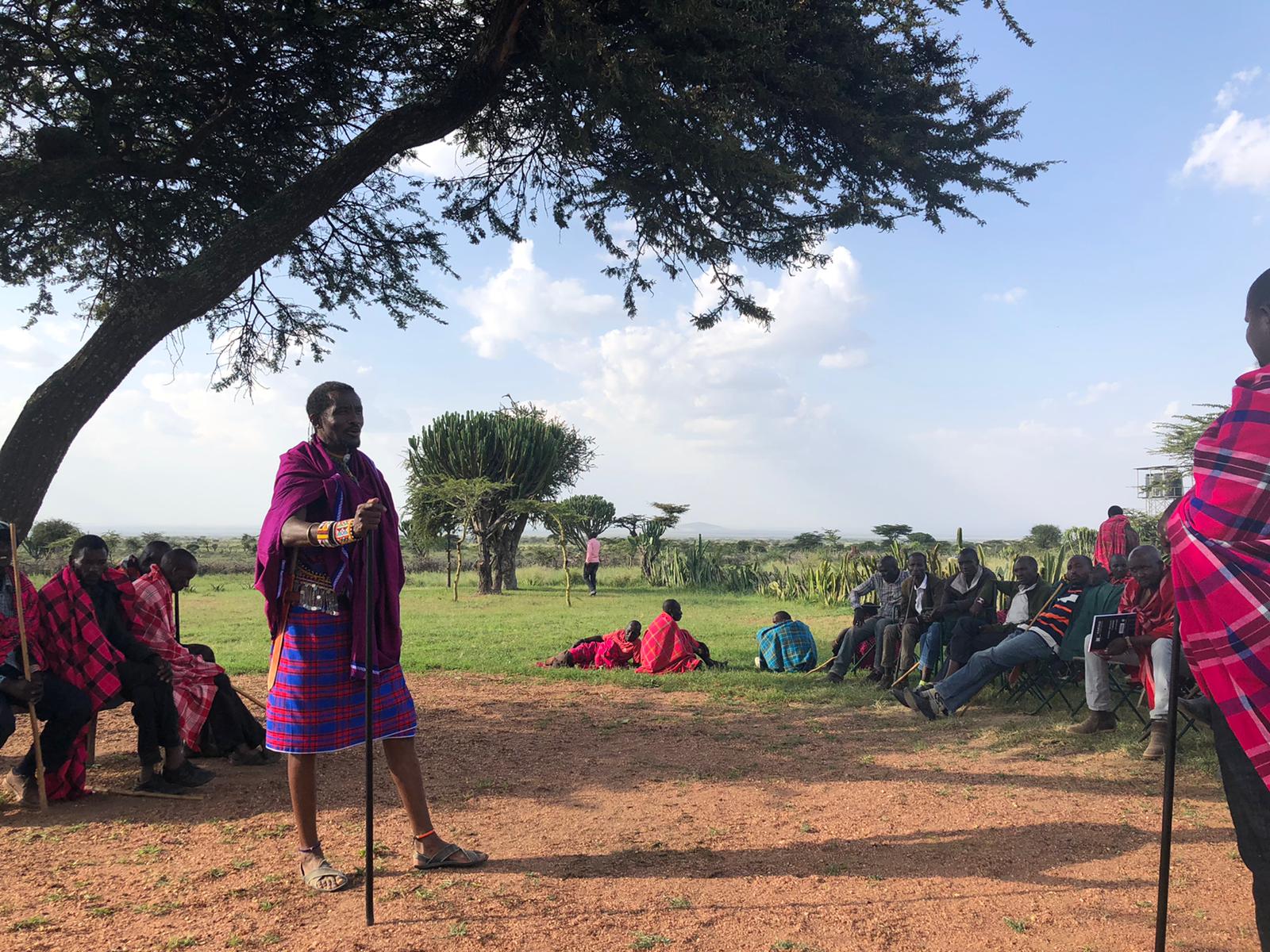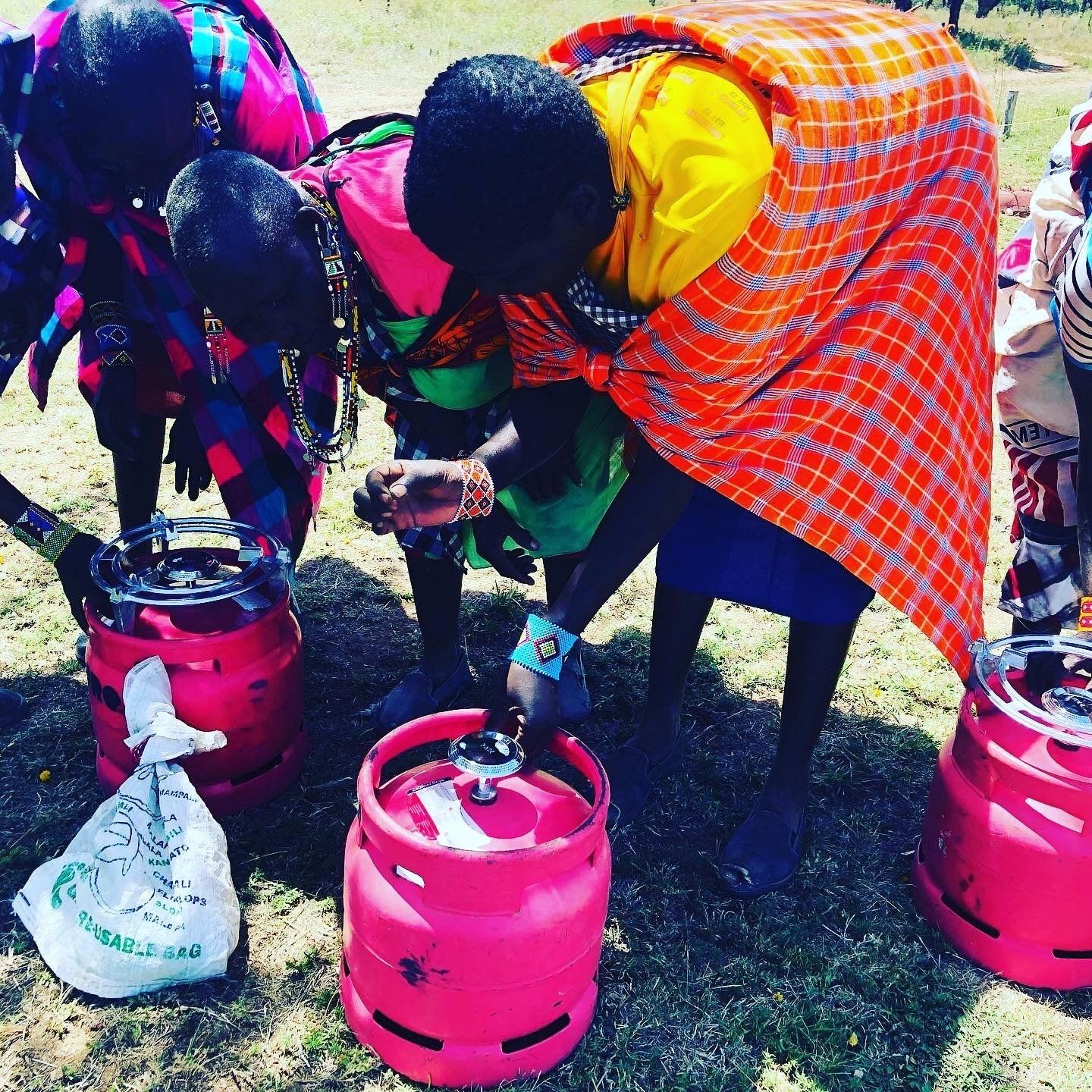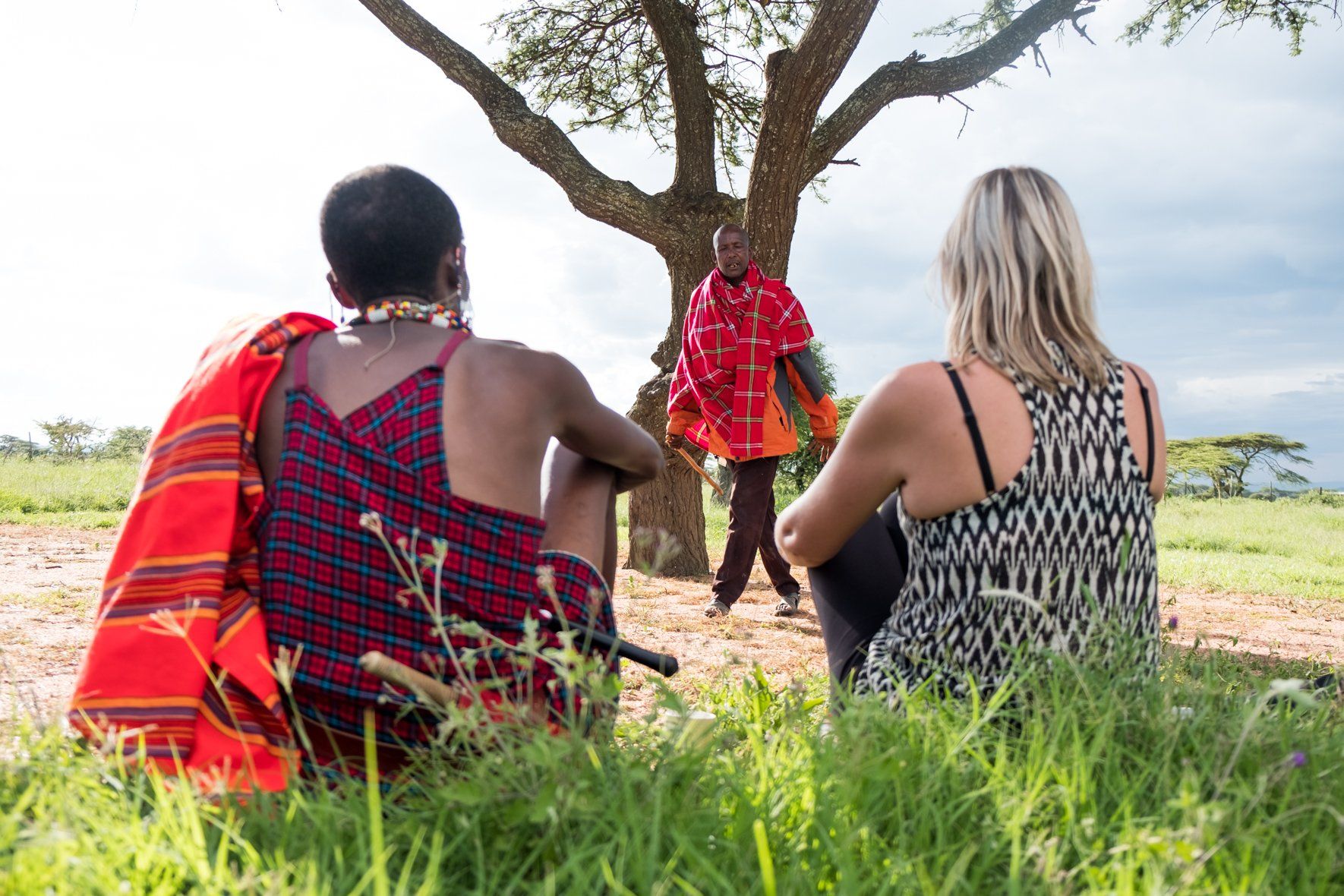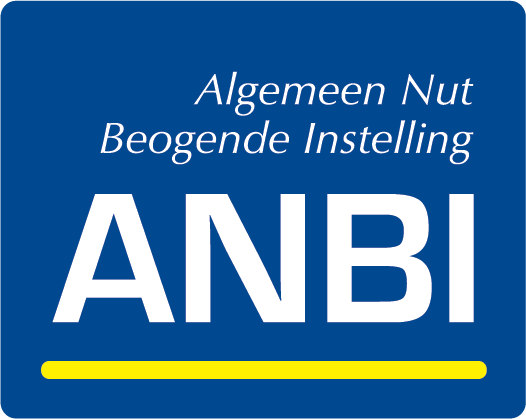Our work
Our first focus is on an area of approximately 3000 hectares in the Loita Hills & Plains, the habitat of thousands of Maasai people and wildlife. In addition to many elephants, giraffes, zebras, antelopes, this area is the breeding zone of thousands of wildebeest.
Our approach
We find it essential to develop projects and work together with the local Maasai community. A bottom-up vision shows their strong desire to remain pastoralists in harmony with nature. However, some changes are inevitable when we face the future. Due to the enormous population growth, climate change and investors who are buying up land, more and more Maasai and wild animals depend on the same decreasing parcels of land.
To conserve both wildlife and Maasai Cultural Heritage we started off with creating more waterpoints in the area. Water is life! This reduces also conflicts and transmission of diseases.
Secondly we are focusing on the quality of the cattle instead of the quantity. With fewer cattle and the implementation of 'rotational grazing programs', overgrazing can be prevented. Nature can recover and creates a bigger habitat for wildlife. Fewer cows means more and healthier grass per cow, which will generate a higher value on the market.
Secondly we are focusing on the quality of the cattle instead of the quantity. With fewer cattle and the implementation of 'rotational grazing programs', overgrazing can be prevented. Nature can recover and creates a bigger habitat for wildlife. Fewer cows means more and healthier grass per cow, which will generate a higher value on the market.
By adding alternative ways of income, like beekeeping and ecotourism, we believe there will be a sustainable and happy future for wildlife and the Maasai community.
Our projects consists of 3 main aspects
1) Awareness, education and jobs
Awareness on the importance of biodiversity and nature conservation in order to preserve Maasai Cultural Heritage. Education about beekeeping, food gardens, eco tourism, wildlife conservation, financial management and family planning. Creating jobs inside the Conservancy for rangers, guides, drivers, chefs, beekeepers.
2) Restoring 'life in harmony with nature'
Recovering the ecosystem by removing fences and re-opening wildlife and cattle migration routes. Creating clean water sources by drilling wells and dams. Downsizing of cattle and introduction of rotation grazing. Planting indigenous trees, installation of beehives and providing sustainable cooking stoves to reduce the use of firewood.
Recovering the ecosystem by removing fences and re-opening wildlife and cattle migration routes. Creating clean water sources by drilling wells and dams. Downsizing of cattle and introduction of rotation grazing. Planting indigenous trees, installation of beehives and providing sustainable cooking stoves to reduce the use of firewood.
3) Creating a Community-owned Nature Conservancy'
The realization of a protected and sustainable habitat where Maasai people and wildlife can co-exist in harmony. A conservancy which offers enough sustainable ways of income for the Maasai people to support their families.
The realization of a protected and sustainable habitat where Maasai people and wildlife can co-exist in harmony. A conservancy which offers enough sustainable ways of income for the Maasai people to support their families.
On our instagram account you can follow our daily work.
@backtonaturefoundation
Awareness & Education
Awareness & Education
During meetings with the community we talk about the values of the Maasai culture and the importance of life in harmony with nature. We share the current threats and developments in the world and what kind of effect they have on nature, the ecosystem and finally on the wildlife and the community. Especially the Maasai elders, the wisdom and earth keepers, see the changes overtime and the negative effects of individualism, fencing, population growth and climate change.
We also talk about the effects of overgrazing and the benefits of having less, but higher quality live stock and alternative ways of income. We offer trainings in beekeeping, organic farming and building sustainable cooking stoves. And we train the community to become rangers or tourism guides. Family planning is a sensitive topic, but within women groups ideas about means for anticonception are shared.
We also talk about the effects of overgrazing and the benefits of having less, but higher quality live stock and alternative ways of income. We offer trainings in beekeeping, organic farming and building sustainable cooking stoves. And we train the community to become rangers or tourism guides. Family planning is a sensitive topic, but within women groups ideas about means for anticonception are shared.
Restore the ecosystem
Restore the ecosystem
We aim to restore the Masai Mara ecosystem by creating community and wildlife waterpoints, removing fences, downsizing live stock and introducing rotational grazing schedules. With these actions we open up and enlarge migration corridors and restore access to enough natural resources (grass, water, minerals) for the community, their live stock and the wild animals.
We installed more efficient cooking stoves in the villages to reduce cooking on firewood.
Cleaning actions at the village are organized as well to collect plastic bottles which can be recycled. The installation of beehives is also contributing to restore the ecosystem.
Conserve the ecosystem
Conserve the ecosystem
With enough ambassadors and community members we have established a 2000-hectare Community-owned Nature Conservancy. Essential is that landowners get compensated for protecting wildlife and conserving nature. Apart from donations to adopt conservancy land, we are working on enough sustainable ways of income for the Maasai community to survive. Organic honey production, authentic Maasai beadwork and products, tourism and carbon credits will be good alternatives. The trained rangers monitor wildlife and cattle movements and prevent human-wildlife conflicts. When wildlife and Maasai cultural heritage are well conserved, ecotourism can grow and contribute more to sustain the ecosystem further.
Benefits for the Community
Landowners who have not closed off their land with wire fences have free access to clean water. Water is life!
Community members of the 'Back to Nature' Conservancy will, apart from clean water, receive more benefits through the Foundation. Like a financial compensation for conserving their land, solar security lights for the night, sustainable stoves for cooking, fresh vegetables and fruits from the food gardens, rotational grazing program, healthy grass and protection of their cattle, school fees for their kids, jobs in tourism and conservation.
Furthermore, we have introduced several income generating projects. We sell pure honey from our beekeeping projects, organic vegetables from the community gardens and beautiful beadwork ornaments.
We also provide education for the new generation. We send kids to school, which leads to more educated people in the community who can take over the conservancy projects in the future. During school holidays we also run a kids club where kids are taught about ancient Maasai bushcraft, medicinal plants, animal behavior and how to respect wildlife and live in harmony with nature.
Actions taken since our start in 2019
- Several community meetings were hold to share ideas and take actions.
- Cleaning activities were organized with the schoolkids and teachers around the hot spring in the village.
- A constitution is written with the community containing the regulations for all 'Back to Nature' community members.
- Quotes are compared from several drilling companies for a complete installation of a solar-pump water well, including watertower, watertanks, taps and drinking troughs for cattle and wildlife.
- The locations for the first boreholes are selected. Land searches are done with the Ministry of land to approve title deeds of land owners.
- Lease agreements are made to guarantee access to the water wells for all 'Back to Nature' community members.
- Fundraising has started and funds for the first 2 boreholes have been successfully generated.
- The first borehole is completed with 3 taps for the community to fetch water and 1 animal trough of 5 meter long.
- The first organic community garden is completed and 10 beehives are installed. A beekeeping training for the community was given.
- A women beading group is formed and makes beautiful beadwork which is for sale to generate more community income.
- Several gas cylinders are given out to the community. This safes firewood and time, plus reduces the amount of toxic smoke in the houses while cooking.
- The first fences on wildlife routes are removed.
- The realization of the second borehole installation is completed.
- 4 water dams for animals have been dug.
- The realization of the third borehole and second community food garden has started.
- Workshops organic farming for 50 Maasai women.
- Solar protection lights have been provided for all Back to Nature project members.
- The fourth and fifth borehole has been constructed.
- Conservancy roads and 3 rangerposts have been build.
- A Conservancy campsite has been constructed to generate more income through tourism.
- Over 50 more sustainable cooking stoves have been made in the villages of our members.
- 3 safe kraals for the conservancy cows are constructed, including solar lights.
- Drawings of the Maasai Heritage Community & Education Centre are made together with Tertris Design & Build.
- Drawings of the Loita Conservation Awareness Centre are made together with Kraaijvanger Architects.
- A business plan for the handcraft of Maasai products is written together with Secrid Impact Fund.
Main activities and goals for 2025, 2026 and 2027:
- Construction of 1 more borehole and several dams.
- Educating the rangers further and building more ranger posts.
- Construction of more stoves to reduce smoke and firewood.
- Improving the rotational grazing among the 3 kraals/conservancy zones.
- Developing 1 more community food garden with irrigation system.
- Development of Maasai handmade products (income generating project).
- Construction of the Maasai Heritage Community & Education Centre.
- Development of grass banks (income generating project).
- Development of the Loita Conservation Awareness Centre, read more about this.
